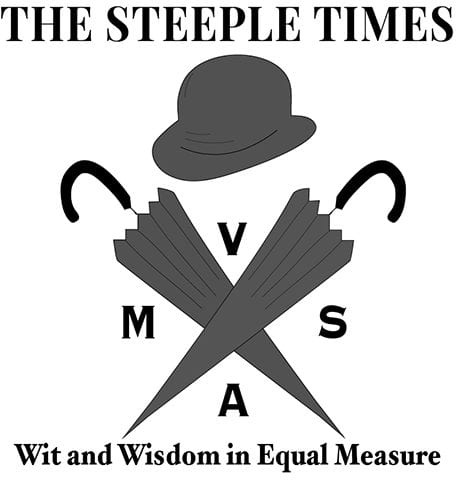George Appleton shares his pet hate: Girls who have boys’ names
We’ve all been there, at a party say, when a girl introduces herself along the lines of: ‘Hi, I’m Charlie’. ‘Oh dear’, you silently say to yourself. Yawn. Not another girl with a boy’s name.

They all seem to be at it nowadays: Girls called Billie, Tommy, Freddie, Al, Sam, Chris, Frank, Alex, Jo… The list goes on. Crikey, there’s even a female blogger (who used to go by the moniker of A Girl Called Jack but who now defines her gender as ‘X’) called Jack. But, far from finding it cool, us chaps actually find it rather annoying, and frankly rather weird, a bit like girls with short hair. I asked a male friend called Charlie what he thinks of girls with the same name. His response was: ‘God, I just f#cking hate that’. It just about says it all really.
One can only assume that such peoples’ parents would have quite liked a son and heir and thus started calling their daughter a boy’s name. I’ve no doubt my parents would have quite liked a daughter too, but they didn’t go around calling me Georgina when I was a nipper. But more often than not, far from being dumpy, rustic tomboys, such girls tend to be willowy blondes from Parsons Green.
In these enlightened times and in the light of the success of films such as Suffragette, one would have thought that girls would be wanting to embrace their femininity rather than employ some masculine moniker. But then again, perhaps it’s some subtle form of empowerment which I’m missing: I am but a mere male after all.
Although this trend does seem to be growing, it’s not necessarily a recent thing. In the 1946 P. G. Wodehouse novel Joy in the Morning, the heroine Zenobia is referred to by her chums as ‘Nobby’ whilst in the radio detective thriller Paul Temple, first broadcast in 1938, the sleuth’s glamorous wife is rather inexplicably called ‘Steve’.
Yet, it would appear that this nominal gender bending is not exclusive to the fairer sex. Boys can have girl’s names too, albeit with subtle spelling variations – for example, Jocelyn becomes Joslyn, and Frances alternates with Francis. Interestingly, Lindsey and Lindsay are interchangeable, as are Evelyn and, well err, Evelyn. Much like the girls though, this does tend to be limited to a certain, shall we say, demographic of society. I am yet to meet a male Joss or Linds who attended the local comprehensive – but maybe I’m just hanging out with the wrong crowd.
But maybe you girls are having the last laugh after all. Last year a female cousin of mine announced her engagement to her long term partner, George. Yep, you guessed it, George is a girl.
George Appleton is a UCL graduate who resides in North Lancashire.
Subscribe to our free once daily email newsletter here:








I totally agree that it is really annoying, even worse is the new PC brigade backed concept that all official Government forms should have Male, Female and “Other” boxes to tick now. That said, historically speaking, in Nelson’s navy in addition to the surprising number of women serving in support capacities such as nurses and cooks, the casualty records show that it was not uncommon to find women serving on warships dressed as men. I guess the pay was better!
What a fun article! George is very witty. I’d like to see a whole series of his pet hates on here as a column.
How patronising. I am not surprised given this is in The Steeples Times – a rag that fails to support dear Gerry and Kate McCann in their efforts to find their beloved daughter Madeleine McCann. Stop wasting time and effort on such drivel and pivel and support Find Madeleine. FIND MADELEINE, FIND HER NOW.
Why don’t you rod off woman????????!!!!!!!!!
You should take the same advice
Gawd! How awful the two most obnoxious, empty-headed posters on Steeple Times at the same time. It really is cringe making. I do wish they’d go away.
Oh dear, is this a lack of ‘good education’? Ever heard of the writer, Evelyn Waugh (1903–1966) a man. Or George Sand, (a woman) Chopin’s lover. 1804 – 8 June 1876). The upper middle classes have used boys names for girls, and visa versa, for centuries.